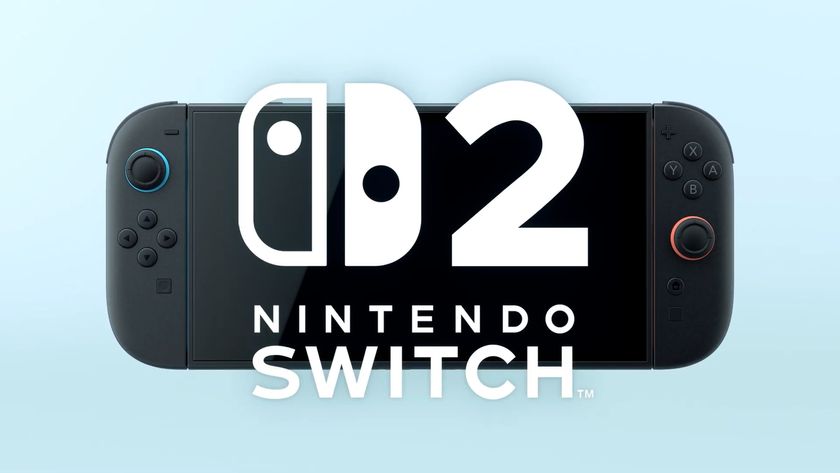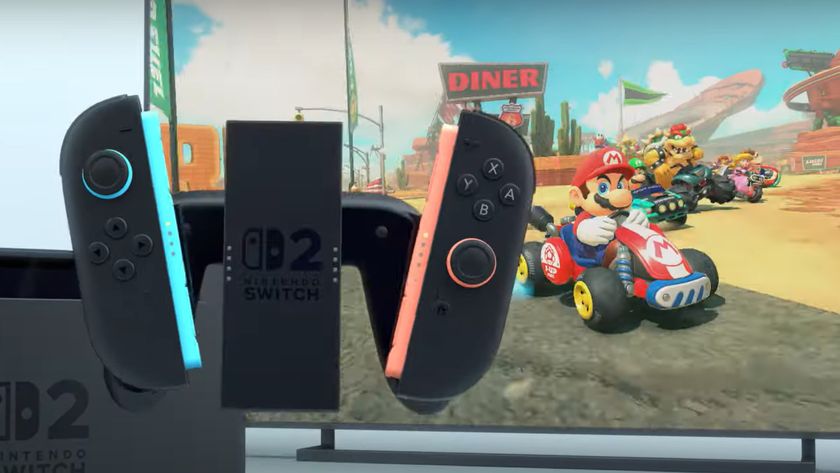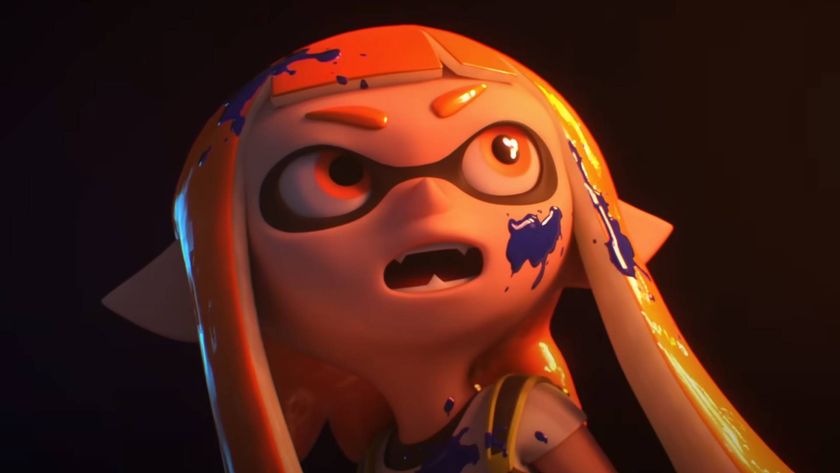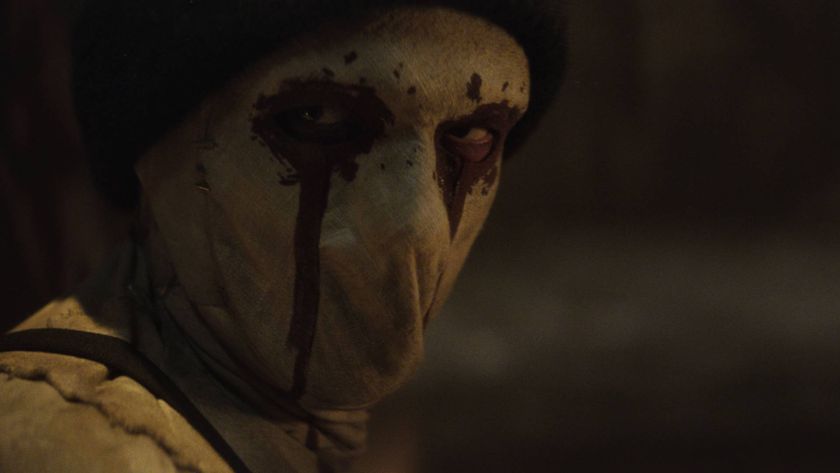The kickboxing instructor, the neuroscientist, and the copywriter who quit their jobs to make video games
Be inspired by the story of three people who quit their jobs and decided to follow their passion for games

Ever wanted to make your own video game? Chances are that if you’re serious about gaming, and it’s one of your main hobbies, you’ve considered the possibility. Or maybe you fancy a change of career, and you know heaps about games, but simply find the idea of diving into the world of game development intensely intimidating. After all, taking that first step from playing games to actually creating them is a massive decision, and it’s usually driven by a little more than curiosity. You have to want it.
“As far as I could see from the outside of the industry looking in, I had two options,” says Tom Reiffer, a second-year student on the Games Design and Development course at the National Film and TV School, in the UK. “I could go into QA and "work my way up" while teaching myself code and design on the side (being my two specific areas of interest), or I could shell out for a course and learn one or both of those things full-time.” He’s one of several students I teach at the NFTS, all from very different backgrounds, who are united by their desire to change careers, and launch a life in video game development. They’ve taken a big leap towards the dream of making games for a living, and I want to know why they did it and how that decision is working out for them.

“I graduated in 2016 with a BA in English Literature from the University of Leeds and somewhat naively thought I could just stroll into a games studio and find work as a writer,” explains Daisy Fernandez, also a second-year student at NFTS. “Obviously, that wasn’t the case. My lack of technical credentials were a seemingly permanent stumbling block.”
The reality of video game creation is that it’s hard, and as much driven by technical knowledge, experience, and logic as it is creativity. Sure, you can simply download a software package, like Unity or GameMaker, and just start plugging away at it, but so few are motivated enough to stick with it. So it’s technically possible, and the tools for amateur creators have never been more easily accessible. But for every successful independent creator, there are hundreds - maybe thousands - who find that their creative spark is snuffed out by the volume of busywork required to not only use systems like the aforementioned two, but to use them effectively. Alternatively, you could join QA and work your way upwards, but many find that a tough and unrewarding experience. That’s where a post-graduate course can help - it gives you the skills, but comes at the price of at least two years of your life, an actual monetary investment, and a lot of understanding from your nearest and dearest. For many, especially in older generations, the creation of video games seems like an immature dream, rather than a valid career.

"My family have been and continue to be an unending source of motivation and inspiration for the games I make"
Tim Kaufmann
“My decision to change careers was terrifying,” says Tim Kaufmann, another NFTS second-year student. Tim gave up a career in neuroscience research to create video games, and it was one of the toughest choices of his life. “After spending over a decade working towards a certain goal, to suddenly change fields was to leap out once again into the unknown. There were of course some friends and colleagues who were wholly against my decision; believing adamantly that I was throwing away my entire career in pursuit of some fantasy. In some cases, it was heartbreaking to say goodbye to them. My family on the other hand have been and continue to be an unending source of motivation and inspiration for the games I make.”
Tim’s final project at NFTS is called Misfolded, and it’s a game that illustrates what happens to the brain when someone develops Alzheimer’s disease. For him, games are a way to illustrate and explain the scientific concepts and ideas he’s been working with for most of his adult life. But it isn’t just professional ambition that drives him. “This game holds a deeply personal significance as it forms an homage to my grandfather; who towards the end of his life fell into dementia. His life story has been the driving inspiration behind both my previous research as a scientist and my current work as a games developer.”
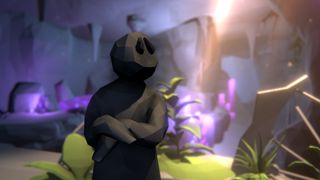
Each of the students I speak to reveal different, very personal reasons for wanting to make games. And that’s very much at the core of why anyone wants to create art - they’re looking to express issues or ideas personal to them via the medium they’re deeply passionate about. Tom, who is making a fighting game called GOLD for his final project, was a kickboxing instructor before he decided to create video games. And while it’s easy to see the connection between fighting games and kickboxing, it isn’t simply a love for martial arts that inspired his creation.
Sign up to the 12DOVE Newsletter
Weekly digests, tales from the communities you love, and more
He explains: “A lot of people come to martial arts because they're unhappy or frustrated and looking to turn something around or prove something to themselves - men, in particular, walked in through the door saying they wanted to "feel like a real man", "gain some confidence" or "earn some respect". Until this point I hadn't realised that gyms of all kinds can really easily turn into little churches of the Cult of Toxic Masculinity, and that a handful of instructors really lean into this by bigging themselves up into something between Gunnery Sergeant Hartman and Conor McGregor.
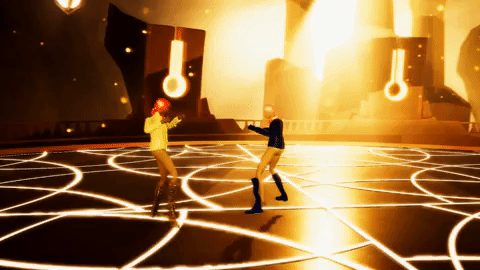
"If you hand a player a controller where every button is about hurting people they're doomed to behave like a total jackass in your world"
Tom Reiffer
“People don't like talking about it in this way, but the reality is that overwhelming violence is a terrifyingly effective tool for resolving conflicts in your favour in the short-term - particularly if you've had formal training and you've got the drop on some poor guy who doesn't know what's about to happen. When the only tool you have is a hammer, every problem looks like a nail, right? I didn't want to just run away from the problem, so I needed to provide the alternative as well... so it turned out that I spent a lot of my time teaching soft skills: empathy, positive masculinity, conflict resolution, self-compassion and community spirit.
“All of this finally comes around to my grad game. Games can do the same thing that gyms can do - if you hand a player a controller where every button is about hurting people and shower them with points whenever they successfully murder someone, then your player is doomed to behave like a total jackass in your world. This can make meaningful character growth kinda hard at best, and excruciatingly anti-thematic/dull at worst. How about we examine a character like this in a scenario that could be really easily solved with soft skills the player just doesn't have any buttons for: a character that only sees the world in terms of physical might. GOLD is the sum total of this - we play the role of an elder sister who doesn't understand how to deal with her younger sister in a mature way, and we witness the tragic consequences of their fighting.”

Far from just being ideological expressions, the quality of the games these students are creating are remarkable, and it’s clear they’ve gained an excellent insight of the game making process over the past 18 months, giving them all solid foundations for their futures. That’s so important. It’s one thing to have bold intentions for a game, or a killer idea, but the ability to execute it in the right way is quite another. Last year, one of the students from the same course - Jonathan Nielssen - was nominated for Best Student Game at the Game Awards in December, a huge achievement and a testament to how valuable the knowledge gained at NFTS is to future creators. I asked the students about the biggest lessons they’d learned during their time so far.
“ “Kill your darlings.” I was told that people will always judge you by the worst thing in your game, so it’s better to cut your losses and create a lean, quality experience,” says Daisy. She’s working on a stealth game called Deserter: A Game of Sorority, which sees you playing as a nurse, attempting to drag an unconscious soldier to safety through a militarised wilderness. She pitches it - terrifyingly - as ‘Inside meets The Handmaid’s Tale’. Daisy continues: “I had plans for a complex AI antagonist in my game, but a couple of months in, I realised that no-one would ever notice how sophisticated its behaviour was unless I switched to an isometric camera.” It’s insights like this that can be invaluable when you start making your own game, or look for a job within the game development industry.
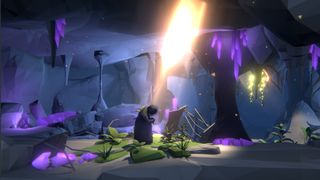
"I was told that people will always judge you by the worst thing in your game, so it’s better to cut your losses and create a lean, quality experience"
Daisy Fernandez
And aside from all the desire to artistically express ideas, or to tell stories via the medium… most people choose to work with video games because they’ve loved them for most of their lives. It’s this passion that ultimately pushed these students - and most creatives in the industry - to spend a good portion of their lives making games. Daisy describes the first moment she fell in love with games: “It was when I played Rayman 2 when I about 5 years old. I was completely besotted and terrified by the ‘The Cave of Bad Dreams’ level. I have never downloaded something as fast as when I saw a remastered version had been released for iOS in 2010.”
Similarly, Tim has been playing games his whole life. “I’ve been a gamer for as long as I can remember,” he says. “The first ever video games I remember playing were on my dad’s old computer while perched on his knee. They were action games like Mad Dog McCree and Star Wars Dark Forces. Games have brought new friends into my life, and I am incredibly grateful for that. I have shared experiences with them that I will treasure for a long time. This, I believe, is the power that games can have. Experiences that I can share with others will always be the games that I enjoy the most.”
This alone seems like the very best reason to make games, and a large part of the fact we’ve never had a broader, more passionate bunch of people creating them. The classic titles of the past are inspiring younger creators right now, and the games they’re making right now… well, they could just inspire a whole new generation of developers too. Are you one of them?
If you feel inspired in any way to get involved… just give it a go. At the very least you can download GameMaker. Or, if you’re serious about it, you can still apply for the Games Design course at NFTS, right here. All the students featured in this article will be at EGX 2018 in September, so please go and say hello!

